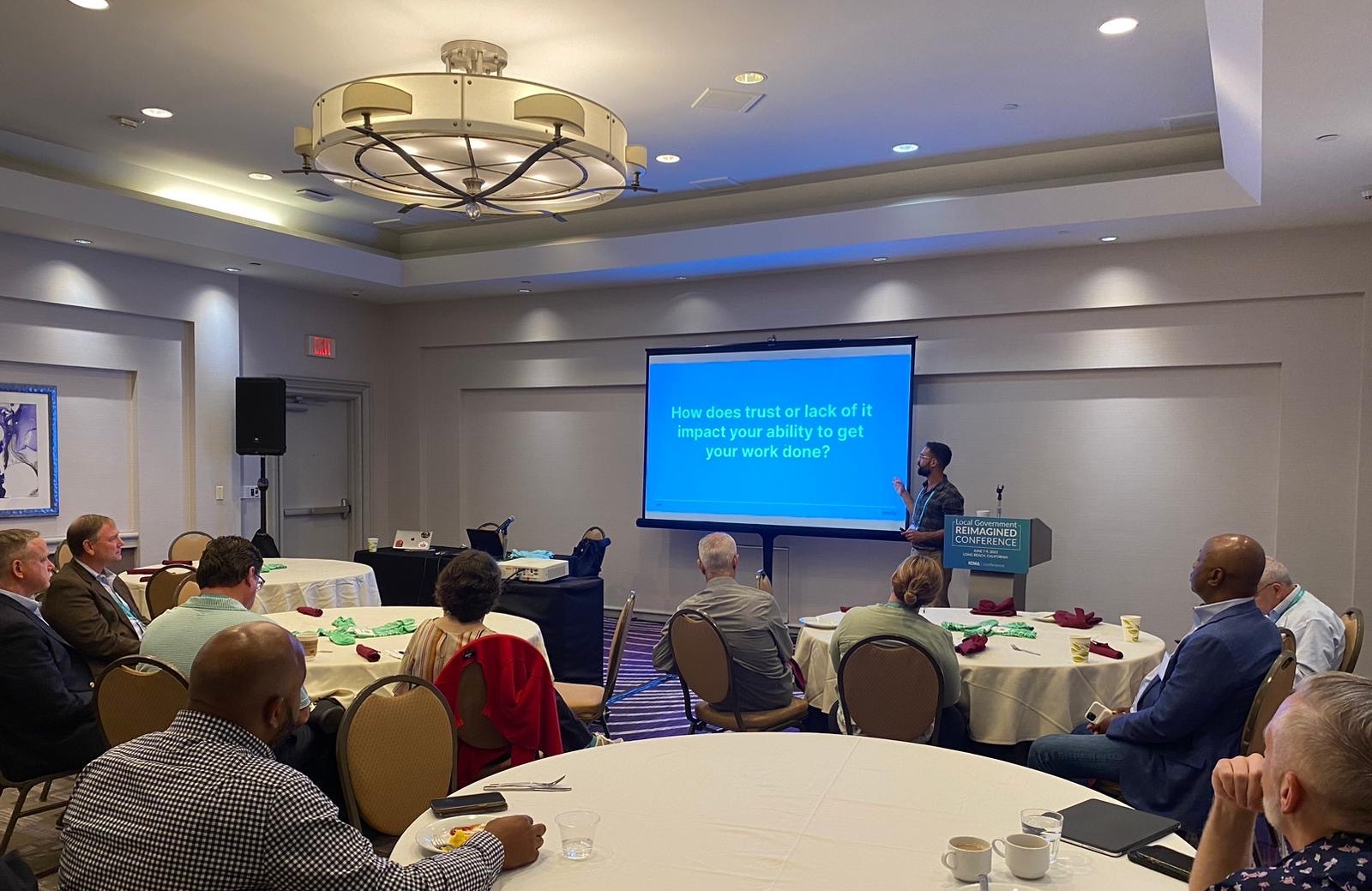Thinking About Trust
Lee Feldman
ICMA-CM (ret.)
At the ICMA Local Government Reimagined Conference in Long Beach, California, Zencity hosted a roundtable discussion with several attendees to discuss the concept of trust between local government and its community. As a result of the conversation, I have been reconciling several thoughts centered around trust; specifically, as a local government manager, do you build, earn or empower trust?
“The trust of a city street is formed over time from many, many little public sidewalk contacts… Most of it is ostensibly trivial but the sum is not trivial at all.”
Jane Jacobs
Jane Jacobs understood that “trust” is “formed”; and while she expresses this thought in a planning context, the same is true when examining it in the context of governance. Trust of local government is achieved (formed) from the many, many little resident interactions (touch points) that occur daily.
We asked for thoughts from the roundtable participants as to what about the concept of trust resonates with them. We heard:
- Smart cities earn trust, but they also build trust by listening and engaging intentionally.
- Trust is a relationship
- Trust is a resource – the “fuel of our work”.
- Trust is an ongoing process
These concepts fit squarely with Jacob’s concept of trust. Think about all of a government’s daily interactions with its residents (which may seem trivial). When a resident wakes up in the morning and the water turns on and the toilet flushes, that is a positive interaction. And when the resident travels safely on the road to work, that is a positive interaction. You get the point. These interactions are really expectations, and the fulfillment of these expectations is the currency of trust. The water doesn’t run, the toilet does not flush, or the road is littered with potholes all cause trust in local government to erode.
One manager at the roundtable opined that it is not about trust, rather it is about faith. Perhaps? At the end of the day, it is our demonstrated performance as local government leaders on the small stuff, the trivial stuff, like getting the streetlight fixed promptly or the missed garbage (even though we know it was put out late) picked-up. Handling these small tasks allows for trust to occur and the sum of these tasks is not trivial at all.
Do you build, earn or empower trust? Maybe as Jacobs says, trust is formed.
%20copy-1.png?width=544&height=120&name=Logo_black%20(1)%20copy-1.png)



